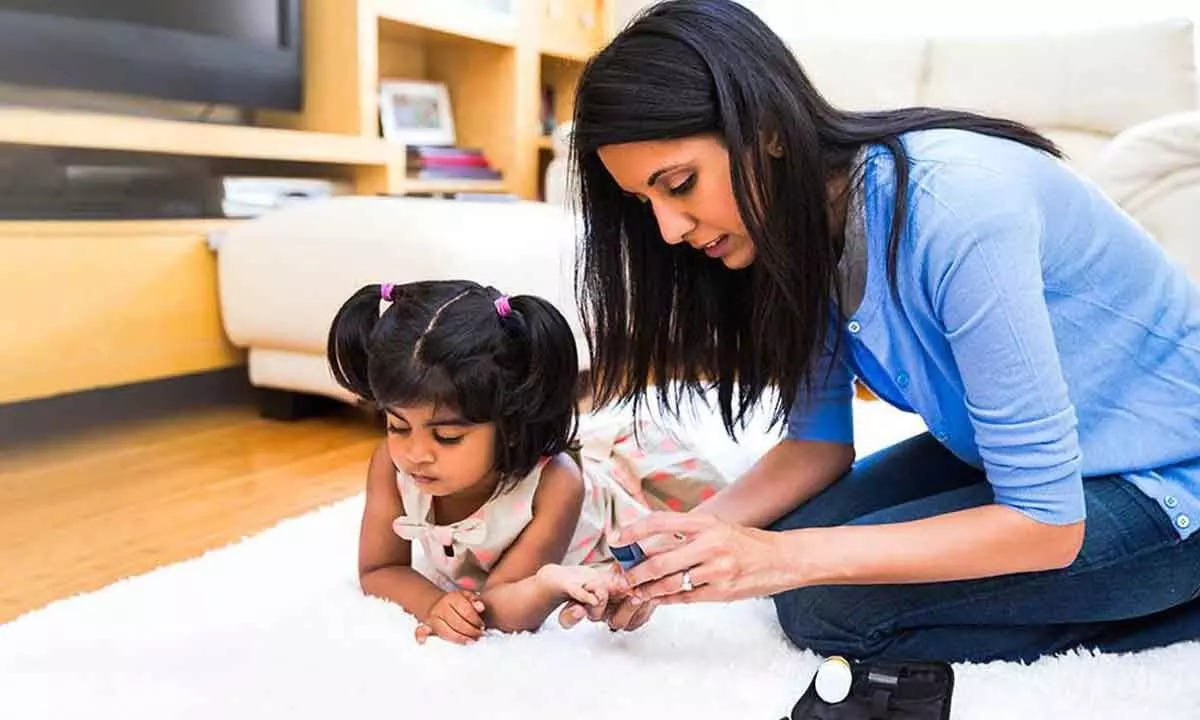Empowering Children with Type 1 Diabetes

A Holistic Approach to Health and Play
Parenting is a journey filled with joys, challenges, and boundless opportunities for growth. When your child is diagnosed with Type 1 diabetes, this adventure takes on a unique twist. Type 1 diabetes, characterised by the immune system’s impact on the pancreas’s insulin-producing cells, demands constant attention to blood sugar levels. However, it’s crucial to recognise that your youngster can live a full, healthy life with Type 1 diabetes. The key lies in focusing on aspects of managing the condition that ensure your child’s overall well-being, such as by prioritising daily exercise
Parenting is a journey filled with joys, challenges, and boundless opportunities for growth. When your child is diagnosed with Type 1 diabetes, this adventure takes on a unique twist. Type 1 diabetes, characterised by the immune system’s impact on the pancreas’s insulin-producing cells, demands constant attention to blood sugar levels. However, it’s crucial to recognise that your youngster can live a full, healthy life with Type 1 diabetes. The key lies in focusing on aspects of managing the condition that ensure your child’s overall well-being, such as by prioritising daily exercise.
Dr Rahul Reddy Chintala, Paediatric Endocrinologist, Ankura Hospital for Woman & Children, Hyderabad commented, “Incorporating physical activity into the daily routine of a child with Type 1 diabetes is important for their health and well-being. For parents, integrating a structured exercise regimen of 30 minutes will not only positively impact their child’s blood sugar control, but also enhance their insulin sensitivity and support a healthier lifestyle. Helping a child navigate their diabetes journey can also be made hassle-free by embracing advancements that simplify diabetes management. For instance, parents can utilise continuous glucose monitoring (CGM) devices, measuring glucose levels all day and night. These offer real-time data on how blood sugar levels respond to factors like meals, physical activity, and insulin doses.”
DrPrashanth Subramanian, Head of Medical Affairs, Emerging Asia & India, Diabetes Care, Abbott added, “Managing diabetes can be challenging for anyone – and in the case of children, parents play an important role to take care of their kid’s health. To empower them and help make the process of diabetes management less complicated, tech-led developments in the form of CGM devices prove useful. These are minimally invasive and painlessly track a child’s glucose levels. More so, through seamless integration with smartphones, they create a digital connection so that parents can effortlessly monitor and stay up-to-date on information in real-time, through data and visual graphs on sudden blood sugar spikes or lows. This is a valuable tool, empowering parents to calculate precise insulin doses for elevated glucose levels, while easing concerns and prompting greater confidence.”
In today’s plugged-in world, physical activity can be tough to incorporate into your child’s life. Luckily, the following game plan – with four simple steps – may make it easier to ensure your child is both healthy and moving:
Find fun activities to help you stay active
The easiest way to keep kids active is to find exercises that interest them. Establishing a routine by signing them up for a team sport helps. Activities could also include riding bicycles, dancing, playing cricket, or enjoying games like khokho or kabaddi with friends or family.
To avoid letting kids feel singled out and like they need to exercise because of their illness, make it a family affair. It’s a fun way to bond, and it keeps everyone in shape. Also, make sure that any activity is paired with adequate sleep, because rest is important for children with Type 1 diabetes.
Check blood sugar regularly
First, even before putting on your running shoes, check your glucose levels. Monitoring helps in determining the next dosage of insulin to be taken. You can do this easily with continuous glucose monitoring devices like FreeStyle Libre. Such devices also link to mobile phone apps, which give you access to your readings. This can let you observe any impact of stress or other lifestyle behaviours on your child’s health, which can lead to them making healthier decisions and spending more time in range (70–180 mg/dL).
Always have snacks on standby
To prepare for exercise, people are recommended to have roughly 15 grams of carbohydrates (such as in the form of a granola bar) before being active if their blood glucose levels are lower than 100 mg/dl — especially if your child plans to be moving around for 30 minutes or more.
However, sometimes, the pre-workout snack isn’t enough to keep sugar levels from dropping. It’s smart to have a snack kit on hand even when not exercising, especially as you never know when the need to be active may strike.
Keep a diabetes journal
You won’t get it right every time — and that’s fine. The important thing is to learn from each experience, such as understanding how your child’s sugar levels react to different foods and activities. Especially when your child is first starting a new exercise routine, you should be checking frequently. Document their blood glucose levels, the food they eat, and the exercises they engage in, with time stamps. This way, you’ll be able to adapt your game plan based on what’s working and what’s not, whether that means switching up snack time or rescheduling a morning jog or an evening walk. Always consult a doctor before making changes to your child’s regimen or in case you have questions.
Remember, kids with diabetes aren’t limited by their condition. With tips like these, you can easily incorporate activity into their lives while their blood sugar levels are at bay – and get the whole family moving at the same time.








